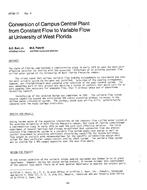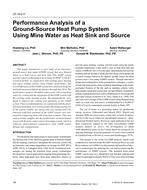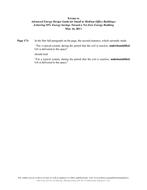In recent years, the use of mechanical ventilation has been called into question mainly due to high energy consumption and natural ventilation of inadequate indoor air quality during much of the year. Hybrid ventilation systems capitalize on the strengths of both ventilation strategies, but there has been little operational experience or performance monitoring of such systems. The TÃ¥nga School in Sweden has therefore been retrofitted with a hybrid ventilation system controlled by a building energy monitoring system. The primary feature of the hybrid system is 6-meter-high solar chimneys, which are used as the main ventilation power source. When stack effect is not sufficient to ventilate the school, the chimneys contain low-energy exhaust fans to supplement the existing stack effect. Monitoring has shown that, with the exception of short periods of time when CO2 concentration exceeds 1000 ppm, the hybrid system provides a good indoor environment with low energy consumption.
Authors: Åsa M. Wahlström, Ph.D. John Rune Nielsen, Ph.D.
Citation: Thermal Performance of the Exterior Envelopes of Buildings VIII
Keywords: December, Florida, 2001
Citation: Thermal Performance of the Exterior Envelopes of Whole Buildings VIII
Product Details
- Published:
- 2001
- File Size:
- 1 file , 710 KB
- Product Code(s):
- D-8023


